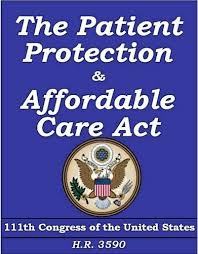Join our team of experienced tax professionals at R&G Brenner! We're hiring CPAs, EAs, office managers, assistants, and building maintenance staff. Apply now for exciting opportunities in tax and accounting services.
What To Do If You Missed The Obamacare Deadline

The Affordable Care Act, also known as Obamacare, has been the law of the land since March 23, 2010. Under the provisions of the law, nearly every American is required to have an insurance plan on or before April 15, 2014 in order to avoid certain penalties mandated under the Act. After many separate repeal attempts and a lengthy court battle that resulted in a 5-4 Supreme Court decision upholding the law, more than 8 million individuals have enrolled in health insurance plans through the state and federal exchanges set up by the government.
Glitches with the government website, healthcare.gov, in late 2013, coupled with an unplanned government shutdown by Congress, caused the original December 15, 2013 enrollment deadline to be moved several times. The final deadline of April 15, 2014 was designed to account for those individuals who might have experienced problems signing up for coverage. If you were unable to enroll before the deadline, there may be steps you can take to either obtain coverage or be considered exempt from the individual mandate which would result in a penalty.
Determine If You Are Eligible to Enroll for Coverage
Certain persons are permitted to enroll in Obamacare after the fact in what is known as the special enrollment period. The special enrollment period permits enrollment through the health care Marketplace even after the deadline has passed, provided the individual has a qualifying life event or can prove that he or she experienced some complex set of circumstances while applying into the Marketplace that prevented the individual from meeting the deadline.
Qualifying life events include such things as a dramatic change in income, a move from one state to another, marriage, divorce or the addition of a child to your family, and illness. Errors during the enrollment period, any misinformation or misrepresentation committed by an assister during the enrollment process or an exceptional circumstance like a natural disaster or hospitalization are examples of complex circumstances that will permit you to enroll in coverage. You will need to be able to provide evidence of your eligibility in order to qualify for the exception.
Determine If You Are Eligible to Enroll for Medicaid or CHIP
If you are an individual whose income is within 133% of the federal poverty level and you meet additional requirements, you may be able to apply to either Medicaid or the Children’s Health Insurance Program known (CHIP) for coverage. Enrollment for these programs is open-ended and depends on certain factors to determine your eligibility. These factors include the state in which you reside, the size of your household and income, whether you or another family member have a qualifying disability and other factors related to the condition of your family or family situation. Enrolling in either Medicaid or CHIP meets what is referred to as the minimal essential level of coverage under the law and may help you avoid the individual mandate penalty.
Apply for Short-Term Health Insurance Coverage
If you have failed to obtain the minimum essential coverage under Obamacare before the April 15th deadline and are not eligible for Medicaid, CHIP or other qualifying coverage, you may want to consider applying for short-term coverage. Short-term coverage will provide you with some level of protection in the event of a medical emergency. These plans typically provide 6 to 12 months of interim coverage and may be an appropriate stop-gap until the November 15, 2014 open enrollment period begins.









